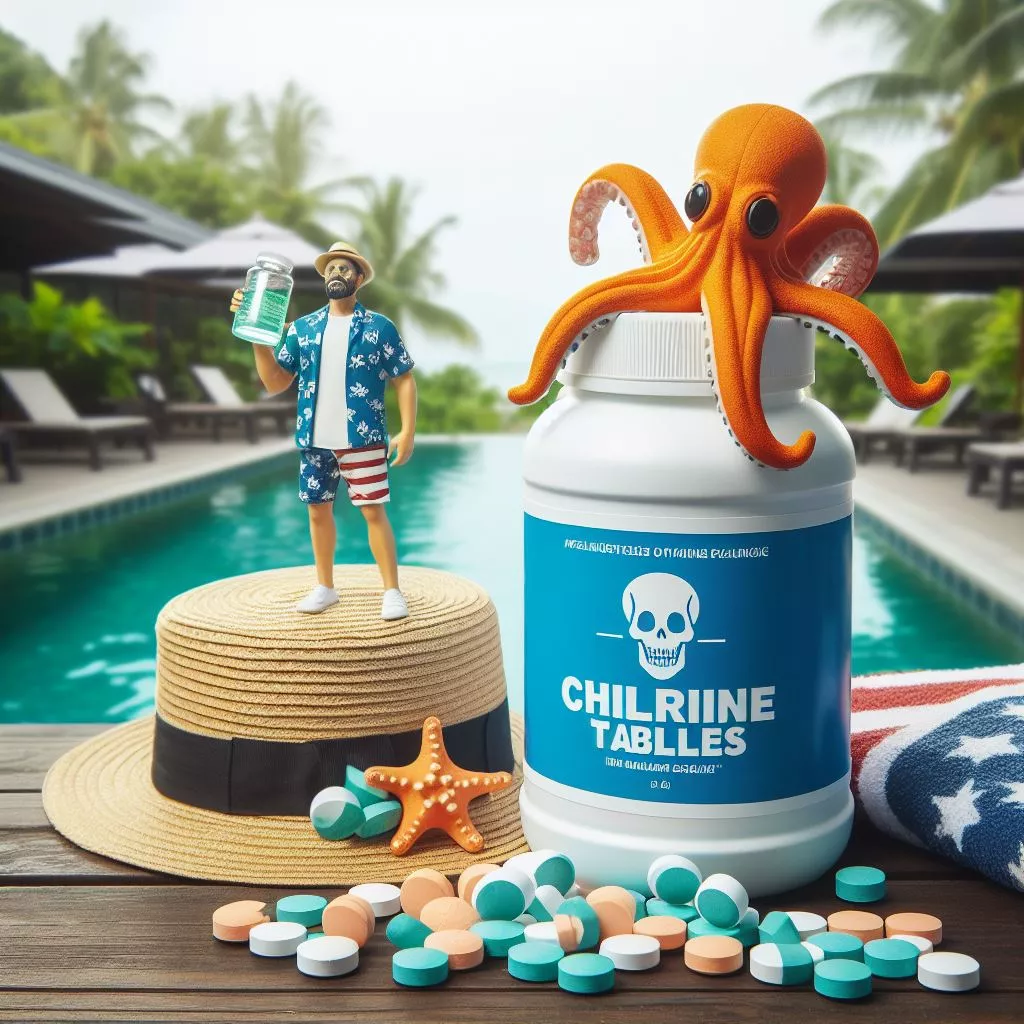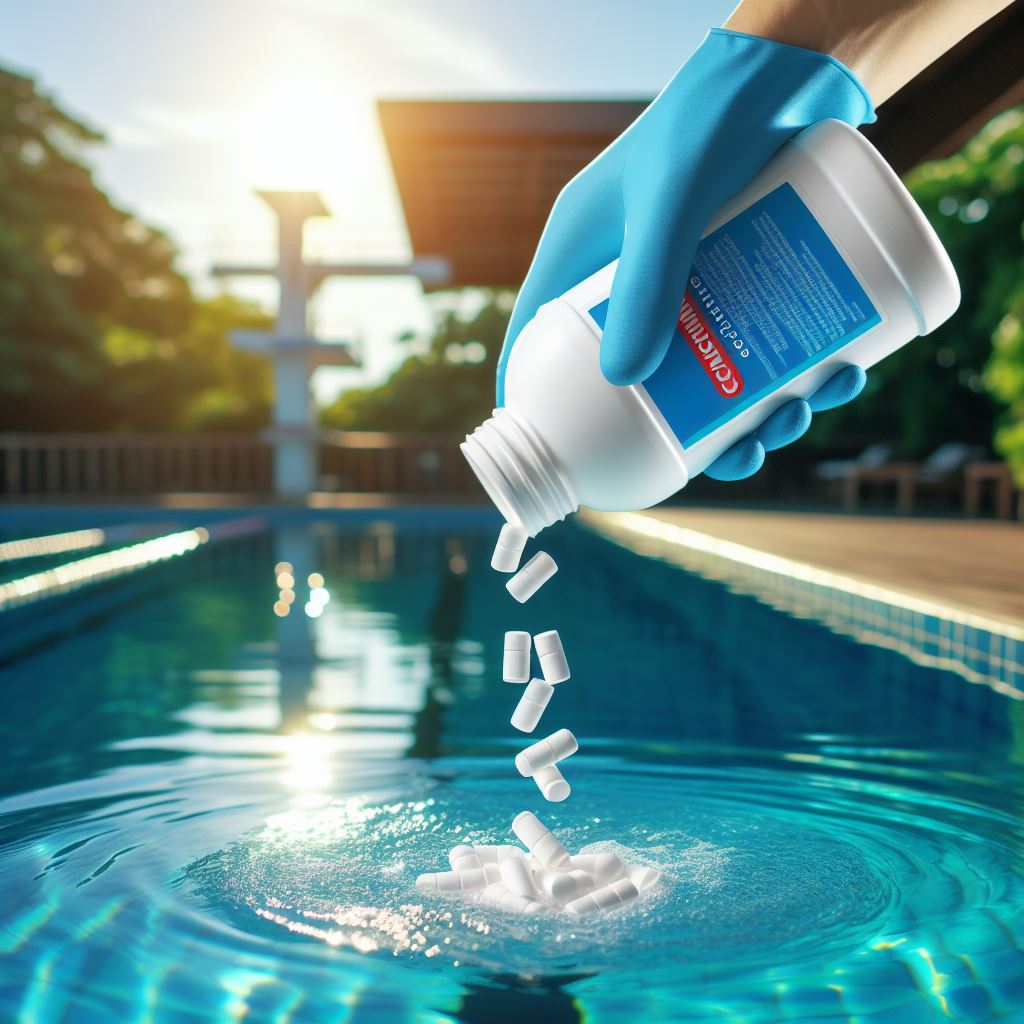When it comes to preserving the pristine clarity and hygiene of swimming pools, hot tubs, and a wide array of water treatment systems, chlorine tablets occupy a pivotal position as an indispensable tool. They serve as the backbone of sanitation, working tirelessly to eliminate harmful microorganisms and keep the water sparkling clean and inviting for users. Nevertheless, it’s imperative to recognize that the potency and efficiency of these tablets are intricately tied to their correct application.

I. The Right Way to Use Chlorine Tablets
1. Follow Manufacturer’s Guidelines:
Always commence by thoroughly reviewing the manufacturer’s instructions, as various brands and types of chlorine tablets necessitate distinct dosages and methods of application. By adhering to these guidelines, you ensure optimal performance and safety in your water environment.
2. Use a Dispenser or Floater:
To ensure even distribution of chlorine throughout the water, use a dedicated dispenser or floater designed for tablets. This prevents localized high concentrations and ensures a more balanced sanitization process.
3. Regular Testing:
Monitor the water’s chlorine levels regularly using a reliable test strip or kit. Aim for a target range specified by the pool’s maintenance requirements, typically between 1 and 3 ppm for swimming pools.
4. Adjust Dosage Accordingly:
Based on the test results, adjust the number of tablets you add daily. Remember, more is not always better; excessive chlorine can irritate skin and eyes.
5. Shock Treatment:
Periodically perform a shock treatment to eliminate combined chloramines (the smelly byproduct of chlorine reacting with organic matter). This helps restore the water’s freshness and clarity.

II. Common Misconceptions About Chlorine Tablets
1. “Throwing Tablets Directly Into the Water is Okay”:
False. Directly adding tablets to the pool can create “hotspots” of high chlorine concentration, which can damage pool surfaces and irritate swimmers. Always use a dispenser or floater.
“The Stronger the Chlorine Smell, the Cleaner the Water”: This is a misconception. A strong chlorine smell often indicates the presence of chloramines, which are harmful byproducts of chlorine reacting with organic matter. Regular shock treatments and balanced chlorine levels help minimize this odor.
2. “One Size Fits All”:
No two pools or water systems are alike. Assuming that a specific dosage or brand of chlorine tablets works for everyone is a mistake. Factors like pool size, water volume, and usage frequency all play a role in determining the ideal dosage.
3. “Chlorine Tablets Are Harmful to the Environment”:
While excessive use of any chemical can have negative impacts, properly managed chlorine levels in swimming pools and other water systems pose minimal risk to the environment. Always dispose of used tablets responsibly and follow local regulations.
4. “I Don’t Need to Test the Water Regularly”:
Regular testing is crucial to maintaining optimal chlorine levels and ensuring the water’s safety. Skipping this step can lead to under- or over-chlorination, both of which have undesirable consequences.
Conclusion
In conclusion, the correct usage of chlorine tablets is paramount in preserving the cleanliness and safety of various water environments, including swimming pools, hot tubs, and water treatment systems. By adhering strictly to the manufacturer’s instructions, you ensure that the tablets are utilized in the most effective manner possible. Employing designated dispensers or floaters not only ensures even distribution of the chlorine throughout water the but also prevents any potential damage to pool surfaces or irritation to users. Regular water testing, using reliable test strips or kits, is crucial to maintaining optimal chlorine levels. This practice allows you to promptly adjust the dosage of tablets as needed, ensuring that the water remains within the recommended range for sanitation while avoiding excess that could be harmful.

 Instant
Quote
Instant
Quote Email
Us
Email
Us